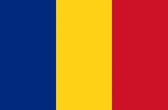
Call 0330 880 3600 Calls may be monitored or recorded. Opening Times.
- TRAVEL INSURANCE
- COVID-19 COVER
- More Options
- Help & Advice
- Existing Customers

Call 0330 880 3600 Calls may be monitored or recorded. Opening Times.

Need help?
UK Customer Services0330 880 3600*
Open Monday to Friday 9:00am to 6pm, Saturday 8:30am to 4pm and closed Sundays.
*Calls are recorded for training and quality purposes.
Other Guides

Official name: Romania
Capital city: Bucharest
Languages spoken: Romanian, Hungarian, German
Population: Around 19 million
Currency: Romanian leu (RON)
Time zone: GMT+2
Driving side: Right
Climate: Temperate-continental with hot summers, cold snowy winters, and pleasant springs and autumns
Romania, in southeastern Europe, is a country of medieval towns, fortified churches, and the dramatic landscapes of the Carpathian Mountains and Transylvania. Bucharest, its capital, combines grand architecture with vibrant nightlife, while regions such as Maramure? and Sibiu preserve traditional culture and heritage. Romania is also home to the legendary Bran Castle, often linked to the Dracula myth. Since joining the EU in 2007, Romania has modernised rapidly, but it retains a strong sense of history and local traditions.
Romania borders Hungary, Serbia, Ukraine, Moldova, and Bulgaria, with a coastline along the Black Sea. The Carpathian Mountains curve through the centre of the country, surrounding the plateau of Transylvania. The Danube River forms much of Romania’s southern border before flowing into the Danube Delta, a UNESCO World Heritage site known for its biodiversity. The country’s geography offers a mix of forests, farmland, mountains, and beaches.
Romania’s main international airport is Henri Coanda International Airport near Bucharest, with additional airports in Cluj-Napoca, Timi?oara, and Ia?i. Train services link most towns, though journeys can be slow. Buses are often faster and more modern. Roads are improving, but driving standards can be poor, so caution is advised. Car hire is available in major cities. Domestic flights operate between larger centres.
Romania is an EU member, but not part of the Schengen Area. UK citizens can enter visa-free for up to 90 days in any 180-day period. Longer stays or work and study require appropriate permits. The British Embassy is located in Bucharest, with consular services available for UK nationals.
The Romanian leu (RON) is the official currency. ATMs are widely available, and credit and debit cards are accepted in most hotels, restaurants, and shops. Rural areas are more cash-focused, so carrying local currency is advisable when travelling outside major cities. Romania is considered one of the more affordable EU destinations, with relatively low prices for accommodation and dining.
Healthcare standards in Romania vary: facilities in Bucharest and other large cities are adequate, but rural areas may have limited services. EU residents can use their EHIC/GHIC card, but comprehensive travel insurance is essential to cover private care or medical evacuation. Pharmacies are widespread, though some medications may have different brand names. Tap water is safe in larger cities, but bottled water is recommended in rural areas.